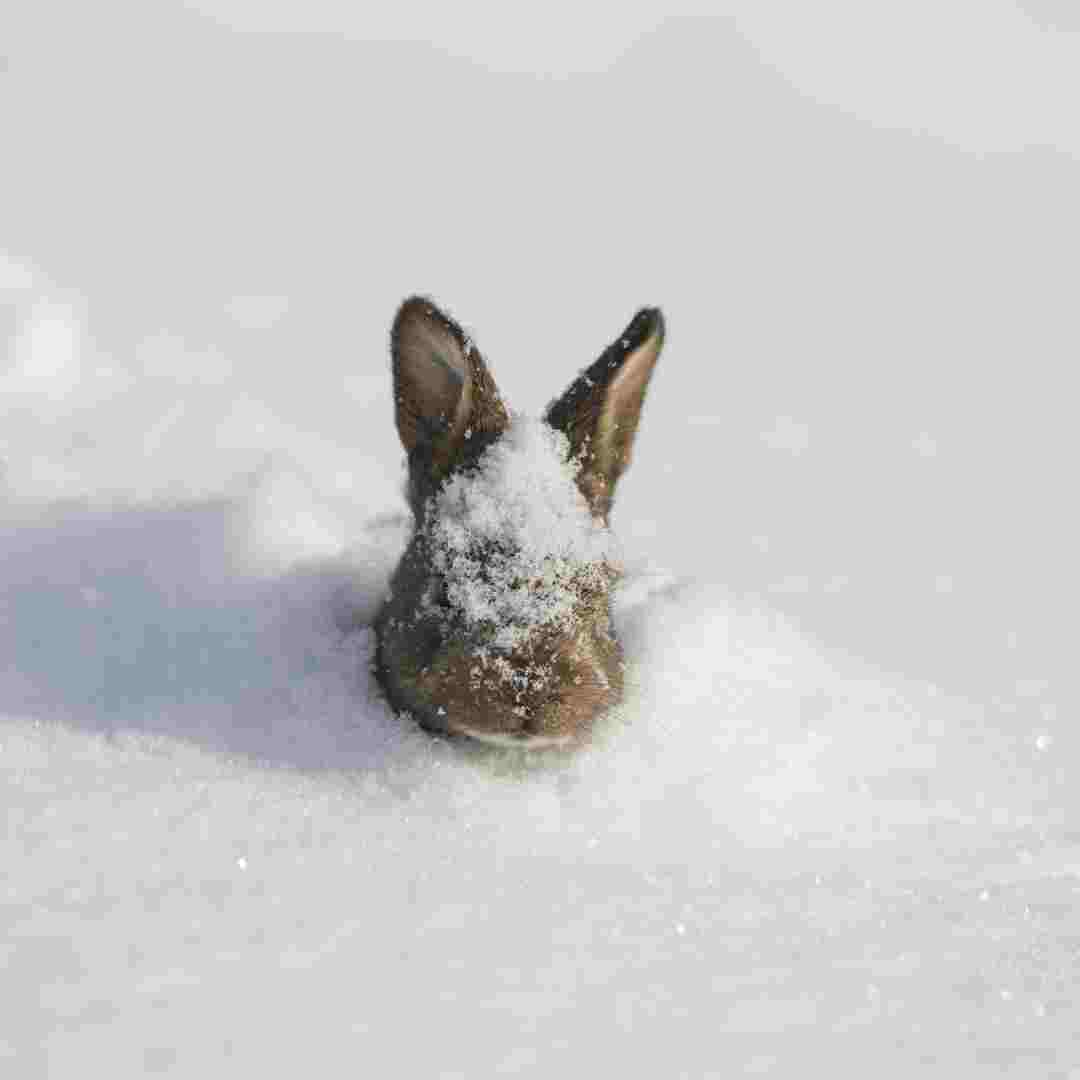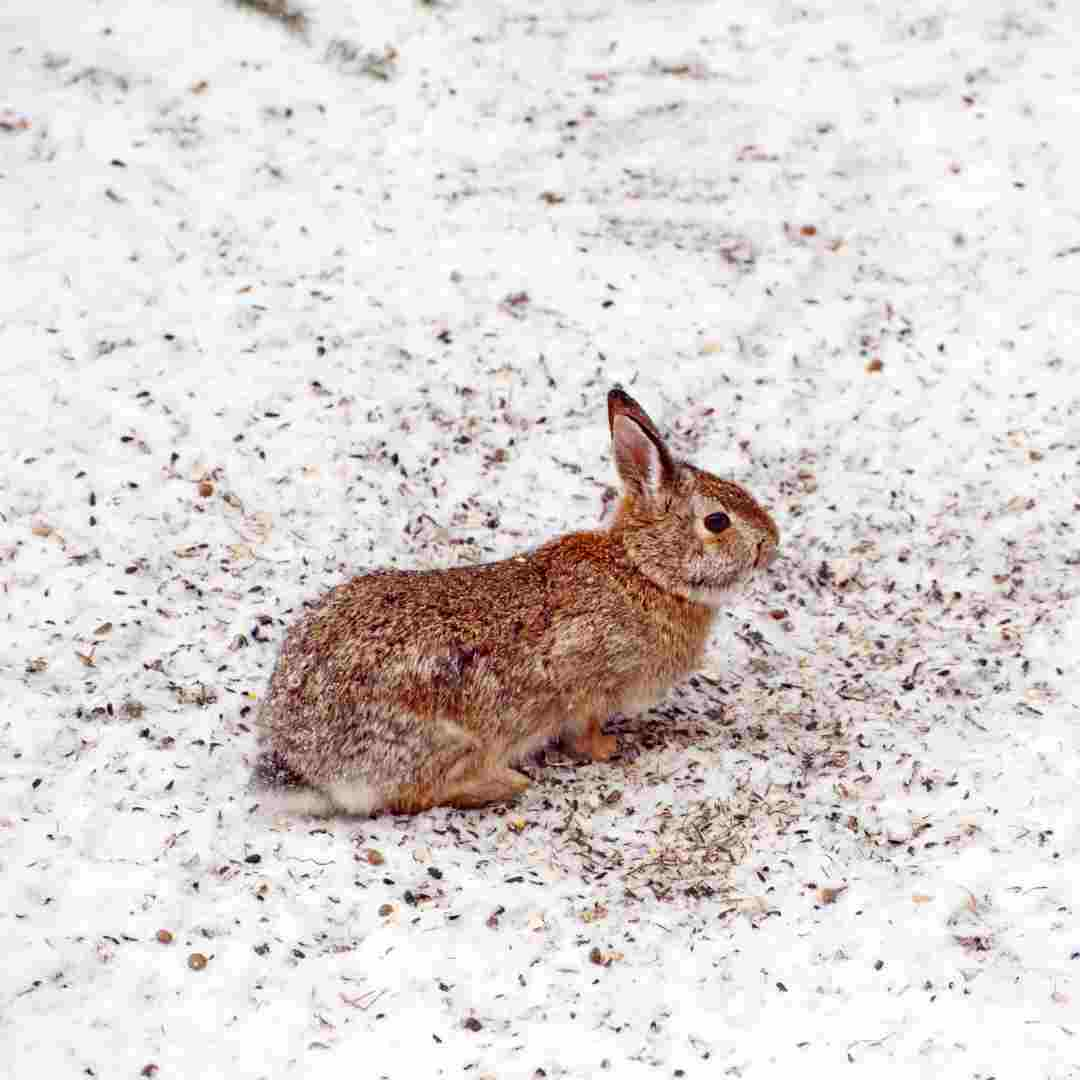Proper Nutrition for Winter Rabbit Health
To keep healthy in winter, your rabbit needs a sufficient diet. If their nutrition isn't altered, rabbits can get sick from temperature changes. Winter feeding suggestions for rabbits.
First, feed your rabbit well. Hay, fresh veggies, and a few pellets are needed. Hay, which is strong in fiber and aids digestion, should make up most of your rabbit's diet. Too many fresh vegetables might upset the stomach. Pellets are heavy in calories and can cause obesity, so use them carefully.
Second, your rabbit needs fresh water. Water keeps your rabbit healthy. Check and replace the water bowl regularly.
Third, keep your rabbit warm. In winter, keep your rabbit's hutch well-insulated and above freezing. If the temperature drops, your rabbit may need a heated pad or blanket.
Finally, exercise your bunny often. Healthy rabbits need exercise. Give your rabbit lots of toys and activities to keep them busy.
Follow these tips to keep your rabbit healthy and happy during winter. Winter rabbit health requires good feed, fresh water, a warm habitat, and exercise.
Winter Rabbit Hay Benefits
Winter rabbits need hay to stay healthy and happy. Rabbits need hay for nutrients and intestinal health. Winter rabbit hay benefits include:
1. Hay maintains rabbit teeth. Hay wears rabbit teeth down and keeps them healthy.
2. Hay's fiber improves your rabbit's digestive system. Fiber prevents diarrhea and constipation in rabbits.
3. Your rabbit needs vitamins and minerals from hay. Vitamins and minerals boost your rabbit's immunity and prevent disease.
4. Winter hay keeps rabbits busy. Hay keeps rabbits busy and prevents boredom.
Winter hay can help your rabbit stay healthy and happy. In winter, rabbits require hay to be healthy.
Best Winter Vegetables for Rabbits
Rabbits eat hay, fresh veggies, and little pellets. To receive the nutrition they require, rabbits need a variety of vegetables in winter. The best winter rabbit veggies are:
Carrots: Vitamin A is vital to a healthy immune system. Fiber-rich carrots aid your rabbit's digestion.
Celery: Vitamin C benefits your rabbit's skin and coat. Its fiber content aids your rabbit's digestion.
Kale: Rich in vitamins A, C, and calcium. Its fiber content aids your rabbit's digestion.
Spinach: High in vitamins A, C, and iron. Its fiber content aids your rabbit's digestion.
Broccoli: High in vitamins A, C, and calcium. Its fiber content aids your rabbit's digestion.
Cabbage: High in vitamins A, C, and calcium. Its fiber content aids your rabbit's digestion.
These are some of the tastiest winter rabbit vegetables. To receive the nutrition they require, rabbits need a variety of veggies. To guarantee proper nourishment, give your rabbit lots of hay and a few pellets.
Winter Rabbit Diet Supplements
In winter, rabbits need extra nutrients. Healthy rabbits need hay, fresh veggies, and little pellets. In winter, they may need to supplement their diet to receive enough nutrients.
First, feed your rabbit lots of hay. Rabbits must always have hay. Provide high-fiber, low-sugar hay. High-fiber, low-sugar timothy hay is a wonderful choice.
Fresh vegetables are the following. To give your rabbit a range of nutrients, give vegetables in moderation and vary them. Kale, celery, and carrots are healthy. Avoid feeding your rabbit potatoes and maize.
Finally, add a few pellets. Moderately high-fiber, low-sugar pellets are best. Your rabbit's diet shouldn't exceed 10% pellets.
Follow these measures to feed your rabbit properly in winter. Monitor and alter your rabbit's diet to ensure they get enough nutrition.

Winter Rabbit Pellets: Pros and Cons
Winter rabbit pellets have pros and cons. Before feeding your rabbit pellets in winter, consider the pros and downsides.
Pros
Winter rabbit pellets help keep rabbits warm. Pellets are abundant in calories, which might help your rabbit stay warm in winter. The fiber in pellets helps your rabbit's digestive tract.
Winter rabbit pellets can help reduce boredom. Pellets offer a range of flavors and textures to keep rabbits delighted.
Cons
Winter rabbit pellets can cause weight growth. Pellets are high in calories, so if your rabbit doesn't exercise, it'll gain weight. If your rabbit doesn't get enough fiber, pellets may be hard to digest.
Feeding your rabbit pellets in winter may limit their food variety. Pellets are nutritious, but rabbits should eat other foods too. To receive the nutrition they require, rabbits need a range of fresh fruits and vegetables.
In conclusion, winter rabbit pellet feeding has pros and cons. Before choosing, weigh the advantages and downsides.
